GLOBAL DEMOCRACY AND
THE WORLD SOCIAL FORUMS
2ND EDITION

Mark A. Boyer and Shareen Hertel, Series Editors
International Studies Intensives (ISI) is a book series that springs from the desire to keep students engaged in the world around them. ISI books pack a lot of information into a small spacethey are meant to offer an intensive introduction to subjects often left out of the curriculum. ISI books are relatively short, visually attractive, and affordably priced.
Titles in the Series
The Rules of the Game: A Primer on International Relations, Mark R. Amstutz
Development Redefined: How the Market Met Its Match, Robin Broad and John Cavanagh
Protecting the Global Environment, Gary C. Bryner
A Tale of Two Quagmires: Iraq, Vietnam, and the Hard Lessons of War, Kenneth J. Campbell
Celebrity Diplomacy, Andrew F. Cooper
Global Health in the 21st Century: The Globalization of Disease and Wellness, Debra L. DeLaet and David E. DeLaet
Terminate Terrorism: Framing, Gaming, and Negotiating Conflicts, Karen A. Feste
Watching Human Rights: The 101 Best Films, Mark Gibney
The Global Classroom: An Essential Guide to Study Abroad, Jeffrey S. Lantis and Jessica DuPlaga
Democratic Uprisings in the New Middle East: Youth, Technology, Human Rights, ana US Foreign Policy, Mahmood Monshipouri
Sixteen Million One: Understanding Civil War, Patrick M. Regan
People Count! Networked Individuals in Global Politics, James N. Rosenau
Paradoxes of Power: US Foreign Policy in a Changing World, David Skidmore
Global Democracy and the World Social Forums, Jackie Smith and Marina Karides et al.
From Jicama to Jackfruit: The Global Political Economy of Food, Kimberly Weir
Governing the World? Addressing "Problems without Passports," Thomas G. Weiss
Forthcoming in the Series
Violence Against Women in the Law, David L. Richards and Jillienne Haglund
The New Warfare: Rethinking Rules for an Unruly World, J. Martin Rochester
International Relations as Negotiation, Brian R. Urlacher
Myth and Reality in International Relations, Jonathan Wilkenfeld
Spirits Talking: Conversations on Right and Wrong in the Affairs of States, Stephen D. Wrage
GLOBAL DEMOCRACY AND THE WORLD SOCIAL FORUMS 2ND EDITION
Jackie Smith
Marina Karides
Marc Becker
Dorval Brunelle
Christopher Chase-Dunn
Donatella della Porta
Rosalba Icaza Garza
Jeffrey S. Juris
Lorenzo Mosca
Ellen Reese
Peter (Jay) Smith
Rolando Vzquez
First published 2014 by Paradigm Publishers
Published 2016 by Routledge
2 Park Square, Milton Park, Abingdon, Oxon OX14 4RN
711 Third Avenue, New York, NY 10017, USA
Routledge is an imprint of the Taylor & Francis Group, an informa business
Copyright 2014, Taylor & Francis.
All rights reserved. No part of this book may be reprinted or reproduced or utilised in any form or by any electronic, mechanical, or other means, now known or hereafter invented, including photocopying and recording, or in any information storage or retrieval system, without permission in writing from the publishers.
Notice:
Product or corporate names may be trademarks or registered trademarks, and are used only for identification and explanation without intent to infringe.
Library of Congress Cataloging-in-Publication Data
Global democracy and the World Social Forums/ Jackie Smith [and eleven others].
Second edition.
pages cm.(International studies intensives)
Includes bibliographical references and index.
ISBN 978-1-61205-644-9 (hardcover: alk. paper)ISBN 978-1-31563-637-5 (eBook)
1. World Social Forum. 2. Social movementsInternational cooperation. 3. Anti-globalization movementInternational cooperation. 4. International economic relations. 5. Democracy. 6. GlobalizationSocial aspects. I. Smith, Jackie, 1968
HN18.3.G543 2014
303.48'4dc23
2013049385
ISBN 13: 978-1-61205-644-9 (hbk)
ISBN 13:978-1-61205-645-6 (pbk)
To those daring and creative enough
to imagine a different world and
courageous enough to help make it a reality
CONTENTS
Reformism or Radical Change: What Do World
Social Forum Participants Want? |
The World Social Forums and the 21st Century
Revolutions |
Conclusion: The World Social Forum Process
and Global Democracy |
| Figures |
Residences of Participants in the 2005 WSF
in Porto Alegre |
Residences of Participants in the 2007 WSF
in Nairobi |
| Tables |
Region of Residence of 2005 and 2007 WSF
Survey Respondents |
Residence of 2005 and 2007 WSF Survey
Respondents by World-System Zone |
Employment Status ofWSF and USSF Survey
Respondents |
Organizational Affiliations ofWSF and USSF
Survey Respondents |
Movement Affiliations ofWSF and USSF Survey
Respondents |
Organizational Affiliations of ESF Survey
Respondents |
Responses to the Question: Do you think we
need to reform capitalism or abolish it? |
Responses to the Question: In the long run,
what do you think should be done about the
existing international financial and trade institutions
such as the IMF? |
Responses to the Question: Do you think it is
a good or bad idea to have a democratic world
government? |
Local, Regional, and National Social Forums
in the United States |
North-South Differences in Views on
Global Strategies and Institutions |
The first edition of this text opened with the exhortation that stirred the first World Social Forum into being: "We know what you're against, but what are you for ?" This is the question that inspired the creation of the World Social Forum process, which may prove to be the most important political development of the twenty-first century. The World Social Forum (WSF) process is composed of a biennial global meeting, complemented by hundreds of regional, national, and local social forums. It all began in Porto Alegre, Brazil, in 2001, when more than 15,000 activistsmore than three times the number expectedgathered, united by the slogan "Another World Is Possible."
Since then it has met in other cities of the global south, including Mumbai, Caracas, Karachi, Bamako, Nairobi, Dakar, and Tunis. This choice of meeting places reflects an explicit attempt on the part of WSF organizers to make voices and perspectives of the global south more central to global policy discussions. Readers will note that our book displays rotated images of the globe to emphasize how our worldviews are shaped by arbitrary conventions that privilege northern perspectives.
The global forum now draws as many as 150,000 participants, and the proliferation of smaller regional, national, and local forums continues to engage many thousands more. Organizers see the WSF process as creating an "open space" for citizens to explore the negative impacts of global restructuring on their local and national experiences while expanding transnational dialogues and social movement networking to address shared problems. The WSF is a space and process for those wanting another kind of global integration that emphasizes human needs over economic growth, environmental protection over corporate profits, and social inclusion over a competitive economic race to the bottom. In a global system where opportunities for citizen participation are rare, the WSF serves as a laboratory for global democracy. Activists are testing new forms of political participation and representation that might eventually help democratize global institutions.

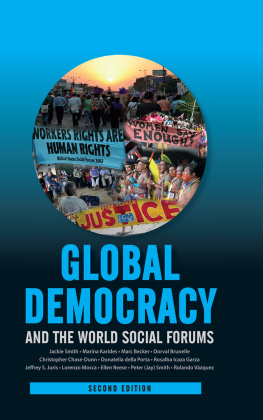

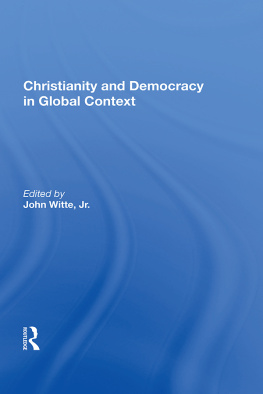

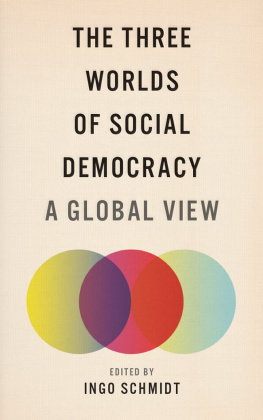
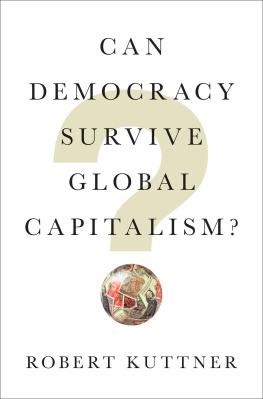
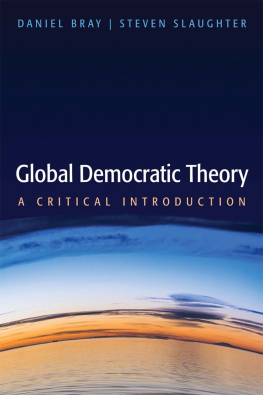
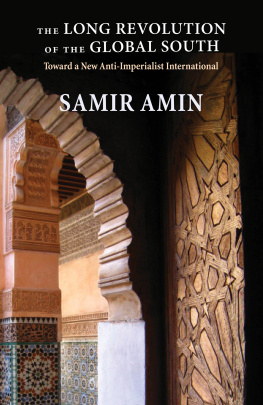
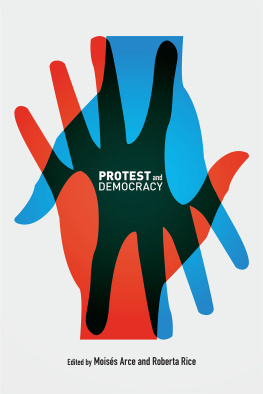
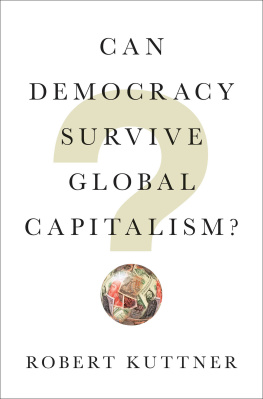
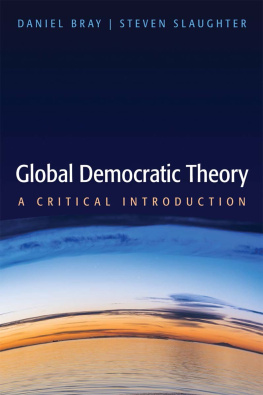
 Mark A. Boyer and Shareen Hertel, Series Editors
Mark A. Boyer and Shareen Hertel, Series Editors
